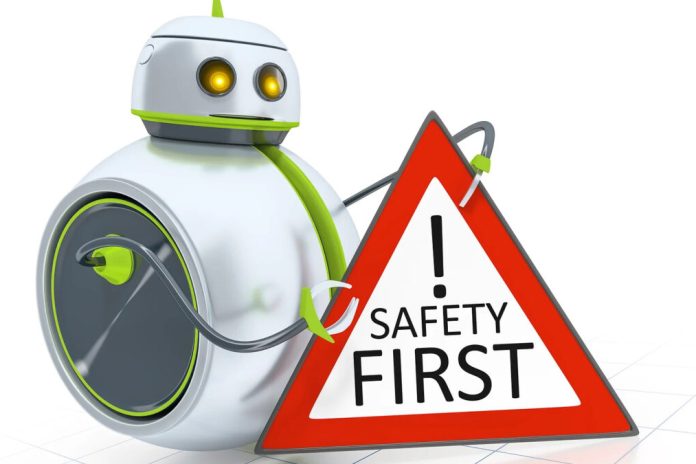By Dr. Gyan Pathak
Things in the course of development of Artificial Intelligence have come to such a pass that the General Secretary of the United Nations António Guterres had to warn the world about the impending danger to the entire humanity. And any delay in putting in place international guardrails could heighten the risks to global peace and security. The Secretary-General’s concluding remarks to the Security Council on Artificial intelligence were particularly alarming as he warned the ministers and ambassadors participating in the meet on December 19 that the rapid developments in AI are outpacing humanity’s ability to govern it, raising important questions about accountability, equality, safety and human oversight in decision-making.
“The fate of humanity must never be left to the ‘black box’ of an algorithm,” he emphasized, stressing the importance of human control over decisions involving the use of force. Particularly alarming, he underscored, was the potential integration of AI with nuclear weapons and the advent of quantum-AI systems that could destabilize global security.
“No country should design, develop, deploy or use military applications of AI in armed conflict that violate international humanitarian and human rights laws. That includes relying on AI to select or engage targets autonomously,” he emphasized, adding that integration of AI into military systems and its misuse in digital security poses great risks.
He even cited AI use in autonomous surveillance, predictive policing and reported life-and-death decisions to support his statement that “recent conflicts have become testing grounds for AI military applications.”
Pointing to deepfakes and AI-generated disinformation, he warned of the major concern in the information domain which can manipulate public opinion, trigger crises and erode trust in societies.
Environmental risks of AI was another area of concern that the UN Chief drew attention to. Highlighting resource-intensive nature of data centres and geopolitical competition over critical minerals needed for AI technology, he pointed out the risks of exacerbating inequality without global cooperation to ensure AI benefits everyone.
Steps have towards establishing global governance for AI, including the adoption of the UN Global Digital Compact at the Summit of the Future and two key resolutions at the General Assembly on enhancing global cooperation and capacity building were also referred to by the UN chief, but a third resolution is still pending to be considered by the General Assembly which focuses on AI in the military domain.
It is worth recalling that the UN General Assembly had adopted the landmark resolution on the promotion of “safe, secure and trustworthy” artificial intelligence (AI) systems in March 2024. The first resolution reaffirmed that AI would be created and deployed through the lens of humanity and dignity, safety and security, human rights and fundamental freedom. The second resolution committed to close the digital gap within and between nations and using this technology to advance shared priorities around sustainable development.
However, development of AI remained without effective control, and the commitments have remained by and large unaddressed. The UN Chief’s comment that AI development has outpaced the human ability to govern it is, therefore, a matter of serious concern.
^The UN Chief had briefed the Council about AI in July 2023 also, and in a short time since Artificial intelligence has moved at breakneck speed. Fueled by record investment, today’s AI models are getting more powerful, more versatile, and more accessible – combining not only language, image, sound, video … but also automating decisions.
“Artificial Intelligence is not just reshaping our world – it is revolutionizing it. … But the risks are equally huge,” warned Mr Guterres. “AI has also entered the battlefield in more troubling ways. … The ‘AI arms race’ creates fertile ground for misunderstanding, miscalculation and mistakes. AI-enabled cyberattacks could cripple a country’s critical infrastructure and paralyze essential services.
It is worth recalling that the UN Security Council had explored the dual-edged nature of rapid technological advancements in October 2024, ranging from artificial intelligence to neurotechnology – highlighting both groundbreaking solutions and emerging risks to global peace and security.
Director of UN Institute for Disarmament Research (UNIDIR) Robi Geiss had said, “The increasing convergence of different technologies, combined with their inherent dual-use nature, can lead to far-reaching and unintended consequences.”
Geiss had drawn attention to quantum technology, which in as little as five to ten years could have multiple and significant impacts on global security. Quantum computing, he explained, could disrupt information and communication security by rendering traditional encryption techniques obsolete. At the same time, it could revolutionize warfare by enabling sensors to detect objects underground or underwater.
Looking ahead, Mr. Geiss had predicted that the next decade would also see major advances in artificial general intelligence (AGI), which would be able to “understand, learn, and apply” knowledge across a wide range of contexts. “This profound shift would have far-reaching consequences throughout society,” he added, calling for urgent action to anticipate both the threats and opportunities posed by these emerging technologies. (IPA Service)


